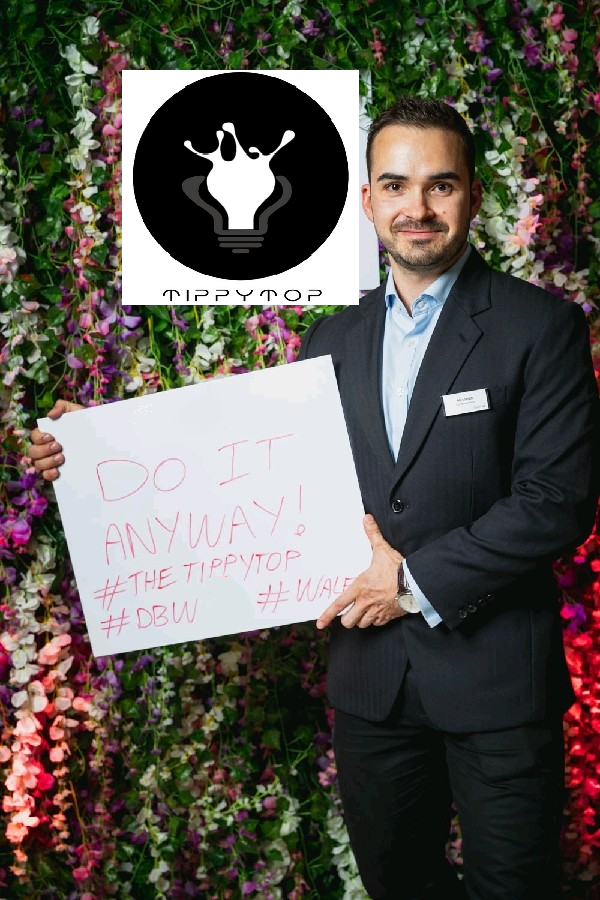
There is loads of generic advice about interviewing out there. I consider these things the ‘hygiene factors’ that need to be in place at a minimum. I’m now taking you to the next level with gold-dust that you can sprinkle on your already excellent interview technique. It will take you from “we think you suit the role” to “we must have you!” Now to be clear, I’m not advocating being inauthentic. Quite the opposite really because the below are fairly self-selecting and if you can’t pull them off, you probably weren’t right for the role anyway.
What I am suggesting is that interviews are a poor form of assessment and riddled with bias. For the majority of highly capable individuals, especially introverts, the process is stacked against you. My hope is that the below goes some way to levelling the playing field.
Ok so what’s in the toolbox of Tippy Top Tips?
1. Always Be Prepared
ABP. If you are thoroughly prepared, you will be more relaxed during the interview. This will enhance your performance and allow you to be more genuine. Remember, for an interview and any meeting for that matter, you need to clarify your intended outcome before the meeting starts. Take the time to think through the 3-4 things you want them to remember about you once you’ve left. Weave these things into the conversation whenever an opportunity strikes.
There is literally no such thing as being over prepared. Even if it doesn’t pay off for this particular interview, it always does in the long-term and is one of the reasons I am able to write this blog with such conviction.
As standard, you need well-rehearsed, quick answers for the following:
Useful tip: Video yourself when responding to these questions. It will dramatically improve your interview technique.
2. Know Your Interviewers
Ahead of time, I suggest writing a career summary for each individual in a notebook on the left-hand side of the page. Then while they are speaking, you can take notes on the right-hand side. This does many things:
Ok so what’s in the toolbox of Tippy Top Tips?
1. Always Be Prepared
ABP. If you are thoroughly prepared, you will be more relaxed during the interview. This will enhance your performance and allow you to be more genuine. Remember, for an interview and any meeting for that matter, you need to clarify your intended outcome before the meeting starts. Take the time to think through the 3-4 things you want them to remember about you once you’ve left. Weave these things into the conversation whenever an opportunity strikes.
There is literally no such thing as being over prepared. Even if it doesn’t pay off for this particular interview, it always does in the long-term and is one of the reasons I am able to write this blog with such conviction.
As standard, you need well-rehearsed, quick answers for the following:
- Tell me about yourself (this usually means, walk me through your CV unless they state otherwise).
- Name 3 strengths and weaknesses.
- Why are you leaving/did you leave your prior role?
- Why do you want to work here?
- Name a time when you overcame a big challenge at work. What did you learn?
Useful tip: Video yourself when responding to these questions. It will dramatically improve your interview technique.
2. Know Your Interviewers
Ahead of time, I suggest writing a career summary for each individual in a notebook on the left-hand side of the page. Then while they are speaking, you can take notes on the right-hand side. This does many things:
- Writing everything down will make you feel more prepared.
- It is a compliment to the interview that you took the time to find out about them.
- It balances the power in the room. They will be sitting there with your detailed CV asking lots of probing questions. LinkedIn has now given you the opportunity to do the same.
- It helps you ask insightful questions that are relevant to your interviewer.

3. Choose The Morning Slot
This is based on some research I came across during my MBA. It suggests that interviewers with a warm drink in their hand, are more positive about candidates than with a cold drink. Given most people drink tea and coffee in the morning, if you have the option, always choose morning interviews. It also of course avoids the chance of the interviewer facing too many work disasters before they see you which can only be a good thing.
4. Treat The Receptionist Like They’re Gold
Because they literally are. I recently heard a story dubbed the ‘£60m Personal Assistant.’ A private equity firm was bidding for a big deal. While waiting in the lobby, they were their usual friendly selves and generated a strong rapport with the PA. Despite having a lower bid price than all of the competition, they won the deal. Why? Because ‘off camera,’ the rest of the firms were rude to the PA despite being very pleasant in the actual meeting. The PA fed back to the management team offering the bid. No surprises, they chose to work with nice people.
This is based on some research I came across during my MBA. It suggests that interviewers with a warm drink in their hand, are more positive about candidates than with a cold drink. Given most people drink tea and coffee in the morning, if you have the option, always choose morning interviews. It also of course avoids the chance of the interviewer facing too many work disasters before they see you which can only be a good thing.
4. Treat The Receptionist Like They’re Gold
Because they literally are. I recently heard a story dubbed the ‘£60m Personal Assistant.’ A private equity firm was bidding for a big deal. While waiting in the lobby, they were their usual friendly selves and generated a strong rapport with the PA. Despite having a lower bid price than all of the competition, they won the deal. Why? Because ‘off camera,’ the rest of the firms were rude to the PA despite being very pleasant in the actual meeting. The PA fed back to the management team offering the bid. No surprises, they chose to work with nice people.

5. Power Pose
Here’s an odd one for you. A couple of minutes before the interview starts, make sure you have the opportunity to head to a quiet room. This is usually the cubicle in a bathroom which feels even more weird. Anyway, stand in your favourite power pose. This could be with your hands on your hips, arms folded strong or doing the Y of the YMCA song. This TED Talk explains that there is scientific evidence that shows this practice lowers your stress hormone, cortisol, and increases your dominance hormone, testosterone. The resulting balance of these two hormones puts you in an optimal state of mind. It means you’ll be calmer, feel happier and more confident. You will likely perform better and others will have a better perception of you. (luckily there’s no cameras in the bathroom of course! You can laugh about it together over a beer once you get the job).
Here’s an odd one for you. A couple of minutes before the interview starts, make sure you have the opportunity to head to a quiet room. This is usually the cubicle in a bathroom which feels even more weird. Anyway, stand in your favourite power pose. This could be with your hands on your hips, arms folded strong or doing the Y of the YMCA song. This TED Talk explains that there is scientific evidence that shows this practice lowers your stress hormone, cortisol, and increases your dominance hormone, testosterone. The resulting balance of these two hormones puts you in an optimal state of mind. It means you’ll be calmer, feel happier and more confident. You will likely perform better and others will have a better perception of you. (luckily there’s no cameras in the bathroom of course! You can laugh about it together over a beer once you get the job).
6. Find Common Ground
What creature are humans most afraid of? The one with the most dissimilar DNA structure to us (answer at the bottom). Conversely, this means we are genetically wired to prefer people similar to us. This is one of the reasons for homogeneity in organisations, especially the ‘pale male’ phenomenon we observe on many company Boards. Given this trait is so ingrained in the human psyche, you need to fight hard against it. You may not look the same as your interviewer but you should be able to find common traits, experiences or preferences. This will greatly improve your chances of getting hired. As above, it therefore pays to thoroughly research your interviewer ahead of time.
7. CAR
Don’t be a misled. When an interviewer asks you a question, they’re not looking for a one-word answer. They are using the question as a mechanism to establish whether you can actually do the job. This is your opportunity to shine. Use it.
CAR stands for: Challenge, Action, Result. So, when an interviewer says, “can you do financial modelling?” “Yes,” is the wrong answer. A better answer is describing a financial modelling challenge you faced, what actions you in particular took in response and most importantly what the results were. Spend your time in the following proportions:
It’s a tried and tested technique. Use it and you’ll be amazed at how well you perform.
So, referring to the above question, this is what it looks like in practice:
See how much more impressive that was than just saying “yes.” An interview is about transferring information. Use the opportunity to show your interviewer how impressive you really are!
P.S. There’s also STAR: Situation, Task, Action, Result. But people remember things in 3’s not 4’s so I’d suggest sticking with CAR.
8. Be The Most Passionate Person In The Room
There’s lots of literature out there about the importance of following your passion. Why? Because it is the route to happiness and success. When you’re following your passion, you’ll likely have seemingly limitless energy to perform your duties and will perform superior to your co-workers. Enlightened employers know this.
Therefore, even if you’re not quite as technically capable at this very moment in time, many employers will hire you if they sense that raw passion for the role. There’s an infamous saying that links to this: ‘hire people for their character and train them to do the job.’
So, if you really want the job and think you’ll performance beyond their expectations, dig deep and show them.
9. Ask Meaningful Questions
When the interviewer asks you whether you have any questions for them, it’s a rhetorical question. Saying ‘no’ is a sure-fire way to lose. The trick to success is to ask insightful questions that show you are seriously considering the role, that you’re ambitious and that you have a vested interest in the answers:
10. Tell Them About Your Other Interviews
It is unfortunately human nature to want what you cannot have. Don’t be afraid to say you have other interviews because it will likely make them more interested in you. Put it in perspective, if you were interviewing for a role and they said no-one else applied, would you want the job?
Just make sure the other interviews don’t raise unnecessary questions. For example, if you’re interviewing for a plumber job, don’t tell them about your interview for a tennis coach. Three other plumbing interviews is fine…
Concluding thoughts
Unfortunately interview bias will always exist, however, it’s not something you have control over so don’t worry about it. Focus on the things you can control and eventually you will succeed.
Remember, interviews are a two-way street. You need to like them just as much as they do you. Your gut will probably tell you everything you need to know. Your only job is to listen to it…
What are your top interview tips?
I would say good luck but now you don’t need it.
Alex @ The Tippy Top Blog
P.S. The creature is of course, spiders! Personally I’m more afraid of snakes but hey.
P.P.S. Here’ a bunch of generic interview tips you should know. I’ve listed them all just in case one slipped your net.
What creature are humans most afraid of? The one with the most dissimilar DNA structure to us (answer at the bottom). Conversely, this means we are genetically wired to prefer people similar to us. This is one of the reasons for homogeneity in organisations, especially the ‘pale male’ phenomenon we observe on many company Boards. Given this trait is so ingrained in the human psyche, you need to fight hard against it. You may not look the same as your interviewer but you should be able to find common traits, experiences or preferences. This will greatly improve your chances of getting hired. As above, it therefore pays to thoroughly research your interviewer ahead of time.
7. CAR
Don’t be a misled. When an interviewer asks you a question, they’re not looking for a one-word answer. They are using the question as a mechanism to establish whether you can actually do the job. This is your opportunity to shine. Use it.
CAR stands for: Challenge, Action, Result. So, when an interviewer says, “can you do financial modelling?” “Yes,” is the wrong answer. A better answer is describing a financial modelling challenge you faced, what actions you in particular took in response and most importantly what the results were. Spend your time in the following proportions:
- 10-20% describing the challenge;
- 60% saying exactly what you did;
- 20-30% Explaining the outcome, especially if it is long lasting.
It’s a tried and tested technique. Use it and you’ll be amazed at how well you perform.
So, referring to the above question, this is what it looks like in practice:
- Challenge: In my old FTSE-listed company, the CFO approached me to help him understand how we could improve our customer service while driving labour down costs. This was a big challenge because costs across the industry were rising.
- Action: I starting collating data from all different systems across the organisation. I conducted meetings with all of the Operations and Area Mangers to better understand the problems. I then created a financial model that fed into an online tool. This allowed the business to etc….
- Result: The model was implemented company-wide across all 24,000 employees. Net Promoter Scores increased by 50%, employee happiness rose 25% and labour costs were reduced 12%. I subsequently received a promotion.
See how much more impressive that was than just saying “yes.” An interview is about transferring information. Use the opportunity to show your interviewer how impressive you really are!
P.S. There’s also STAR: Situation, Task, Action, Result. But people remember things in 3’s not 4’s so I’d suggest sticking with CAR.
8. Be The Most Passionate Person In The Room
There’s lots of literature out there about the importance of following your passion. Why? Because it is the route to happiness and success. When you’re following your passion, you’ll likely have seemingly limitless energy to perform your duties and will perform superior to your co-workers. Enlightened employers know this.
Therefore, even if you’re not quite as technically capable at this very moment in time, many employers will hire you if they sense that raw passion for the role. There’s an infamous saying that links to this: ‘hire people for their character and train them to do the job.’
So, if you really want the job and think you’ll performance beyond their expectations, dig deep and show them.
9. Ask Meaningful Questions
When the interviewer asks you whether you have any questions for them, it’s a rhetorical question. Saying ‘no’ is a sure-fire way to lose. The trick to success is to ask insightful questions that show you are seriously considering the role, that you’re ambitious and that you have a vested interest in the answers:
- [insert specific question from the interviewers CV]
- How will I be measured?
- What attracted you to the firm?
- If you could change one thing about working here, what would it be?
- What level of training does the firm provide and what opportunities are there to progress?
10. Tell Them About Your Other Interviews
It is unfortunately human nature to want what you cannot have. Don’t be afraid to say you have other interviews because it will likely make them more interested in you. Put it in perspective, if you were interviewing for a role and they said no-one else applied, would you want the job?
Just make sure the other interviews don’t raise unnecessary questions. For example, if you’re interviewing for a plumber job, don’t tell them about your interview for a tennis coach. Three other plumbing interviews is fine…
Concluding thoughts
Unfortunately interview bias will always exist, however, it’s not something you have control over so don’t worry about it. Focus on the things you can control and eventually you will succeed.
Remember, interviews are a two-way street. You need to like them just as much as they do you. Your gut will probably tell you everything you need to know. Your only job is to listen to it…
What are your top interview tips?
I would say good luck but now you don’t need it.
Alex @ The Tippy Top Blog
P.S. The creature is of course, spiders! Personally I’m more afraid of snakes but hey.
P.P.S. Here’ a bunch of generic interview tips you should know. I’ve listed them all just in case one slipped your net.
- Understand the interview procedure – An interview is used for a firm to determine whether you are a cultural fit and have the right skills to perform the job. It’s similarly an opportunity for you to figure out whether you want to work at the firm. The format is usually as follows:
- 10 minutes of them selling their benefits as a firm;
- 40 minutes of you selling yourself;
- 10 minutes of them selling themselves in response to your questions.
- Arrive at the right time – 10 minutes before is perfect. 20 minutes is too early may annoy your interviewer.
- Don’t ask for coffee/tea – They are maybe going to be your manager, not your barrister. Get a coffee before hand and just ask for water in the interview in case you start getting cotton-mouth.
- First impressions count – Shine your shoes, press your outfit, smile, give a firm handshake.
- Use people’s names – If you’ve read the book, you’ll know its everyone’s favourite word!
- Watch your non-verbal communication – Maintain eye contact, don’t lean on the table etc.
- Leave on a high – Again, smile, thank the interviewers for their time, give a firm handshake, maintain eye contact and stay enthusiastic no matter how you felt the interview went.



 RSS Feed
RSS Feed